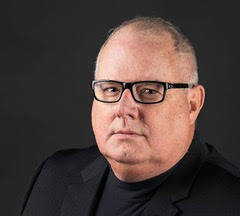Public utility commission needed for social media
Holding and reading a newspaper is old school these days. However, Facebook, and other social media platforms, have given us the power of instant feedback. I said in a previous column that all feedback is good, even when it is negative.
A nice lady responded to my last column wanting to know what qualifications I possessed to write about the Wuhan virus, demanded that I write opinions only on the Army and police work, and further demanded a petition calling for my removal.
I had to reread my own column to ascertain where I had expressed a scientific opinion beyond my life’s experiences and Master of Criminal Justice and forensic science degrees. Nope. Nothing there. Just facts I strung together to ask some questions.
However, thank you, madam, and many others, for taking the time to read my column and for expressing your feelings on the Boulder City Review’s Facebook page.
There are over 260 million Facebook users in America — almost double from 2010. Three-fourths of the American population use one of more forms of social media. Twitter has about 68 million daily users, 42 percent of which are 18-29 years of age, and over 200 million Americans view YouTube each month.
Google, the de facto American Chinese Communist Party spokesperson (in my opinion) has over 267 million unique users in the United States. Unfortunately, it has a 92 percent share of the search engine market. (I use DuckDuckGo as a search engine).
Section 230 of the Communications Decency Act of 1996, a 100-page bill written 25 years ago to combat internet pornography, is a 700-word clause that eliminates legal liability for third-party content posted to social media platforms and interactive websites. However, the clause also allows owners to remove any content that violates their rules. Politicians from both sides of the aisle are clamoring to repeal Section 230, albeit for different reasons.
Instead of eliminating a 25-year-old legal clause that allows social media owners to run roughshod over people they don’t like, perhaps we should examine the possibility of enforcing the laws and regulations inherent in public utilities.
According to Cornell Law School, “A public utility is an entity that provides goods or services to the general public. Public utilities may include common carriers as well as corporations that provide electric, gas, water, heat, and television cable systems. In some contexts, the term “public utility” may be defined to include only private entities that provide such goods or services.”
Is it time to establish a public utility commission for social media platforms? I say absolutely.
According to the Washington Post, Facebook founder and owner Mark Zuckerberg and his wife “gave $400 million to non-profit organizations to pay election workers, train poll workers, and rent polling locations in various states.” One doesn’t have to be a genius to figure out which states Zuckerberg helped manipulate election results.
Prior to the 2020 election, Twitter locked then-President (Donald) Trump’s account and blocked a legitimate news story by the New York Post detailing the risqué contents of a laptop abandoned by Hunter Biden.
YouTube (owned by Google) covered for Joe Biden during the campaign, but fact checked anything Trump or his supporters said.
A top Google program manager admitted in an undercover Project Veritas video that Google manipulated data and other information in favor of Joe Biden.
Would we allow a billionaire to exclusively own Nevada power? Of course not. We cannot allow billionaire oligarchs to continue running Big Tech corporations.
Election interference, censorship and misinformation are the hallmarks of a totalitarian regime. Why do we allow billionaire oligarchs to commit such atrocities under the guise of “community standards” in America?
Big Tech is more powerful and more dangerous than some third-world countries. Their monopoly must be independently regulated or perhaps broken into smaller pieces a la Ma Bell 40 years ago.
The time to act is now. I encourage everyone to write or call their elected representatives and demand a public utility commission for all social media platforms.
The opinions expressed above belong solely to the author and do not represent the views of the Boulder City Review. They have been edited solely for grammar, spelling and style, and have not been checked for accuracy of the viewpoints.
Dan Jennings is a retired Army captain and a retired BCPD lieutenant. He can be reached at bcpd267@cox.net.





